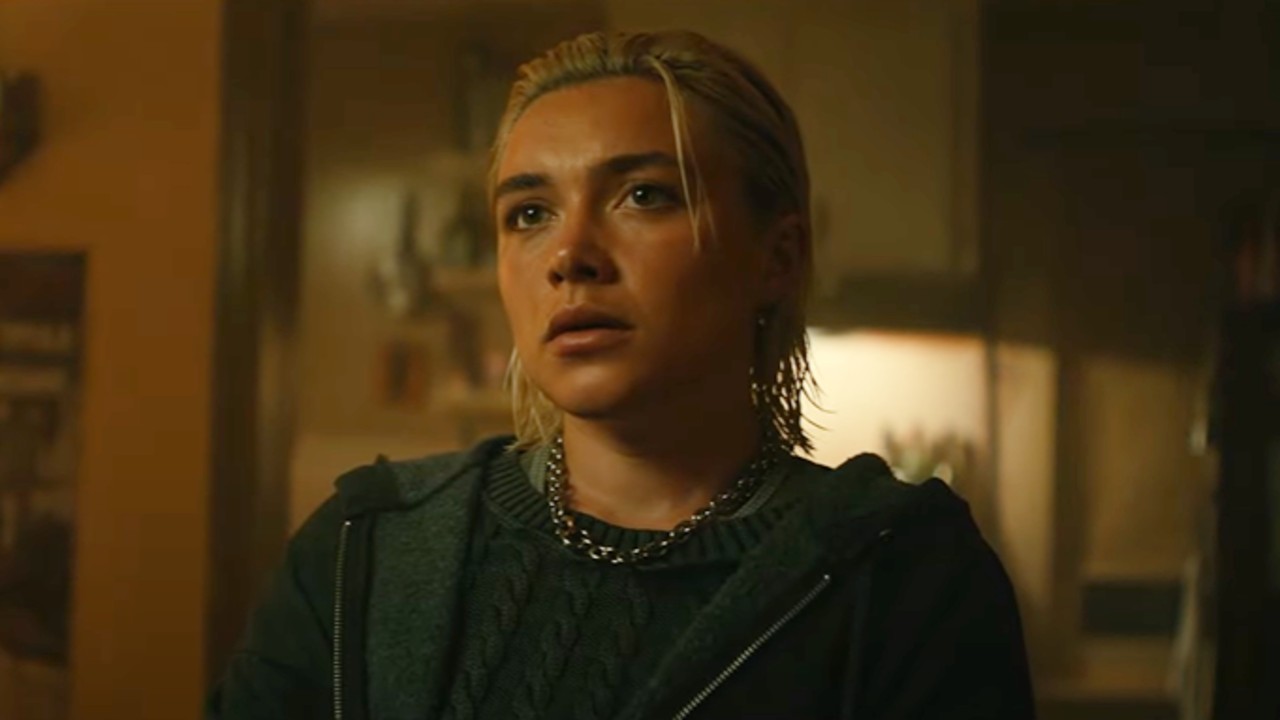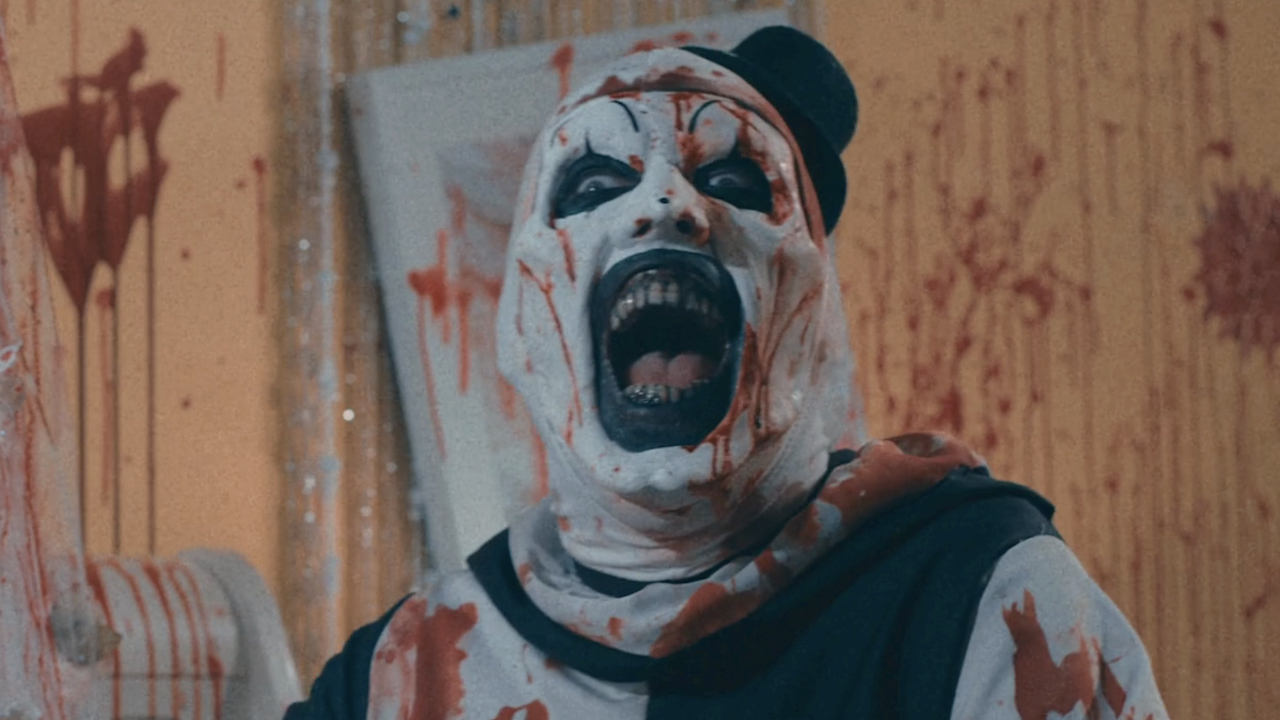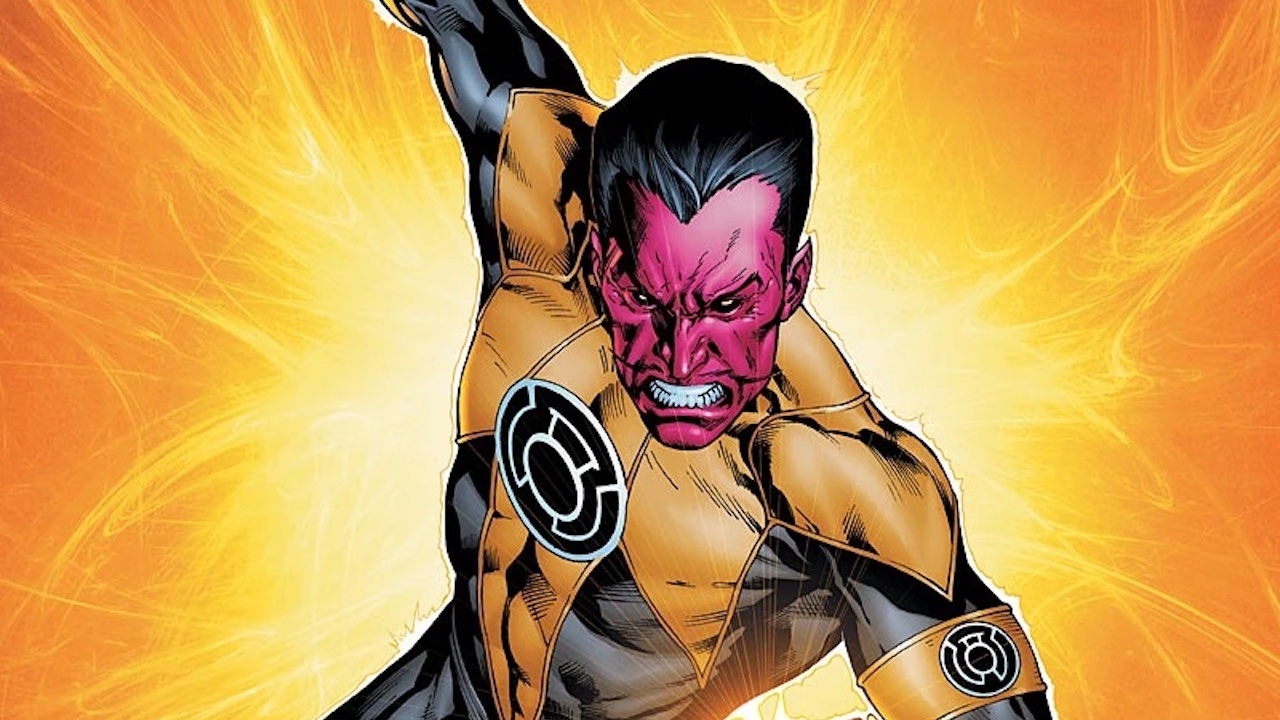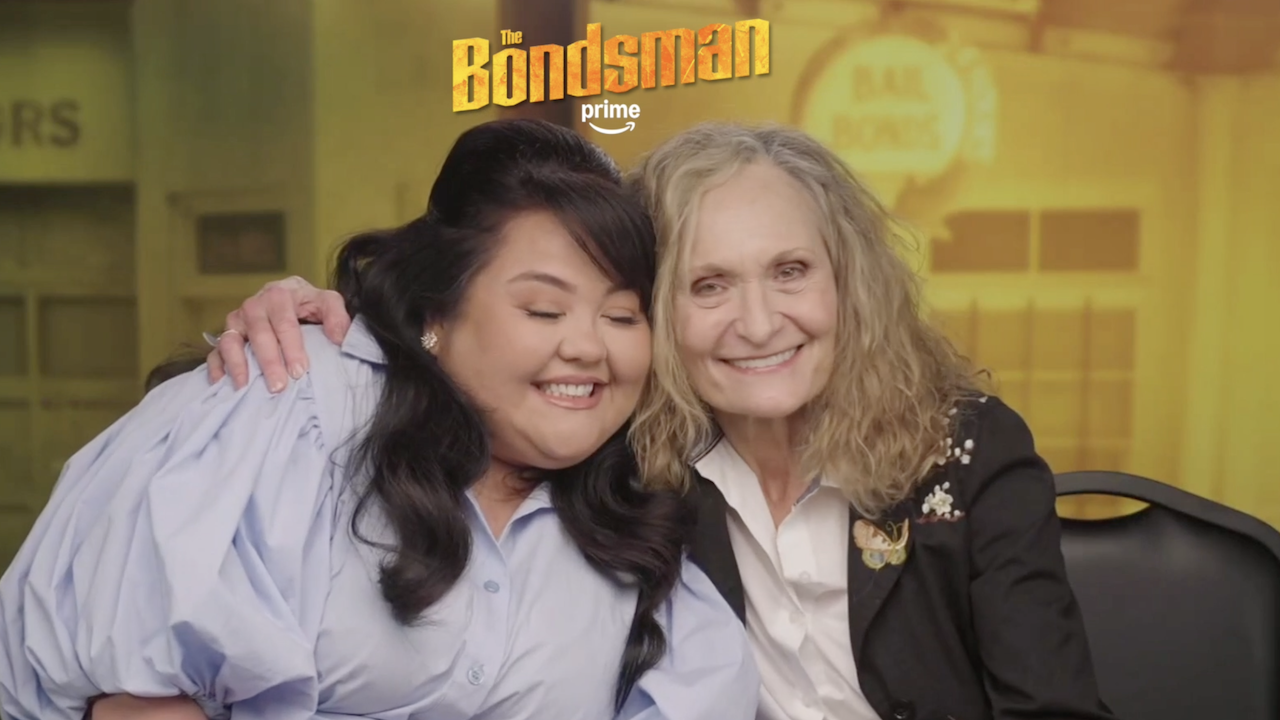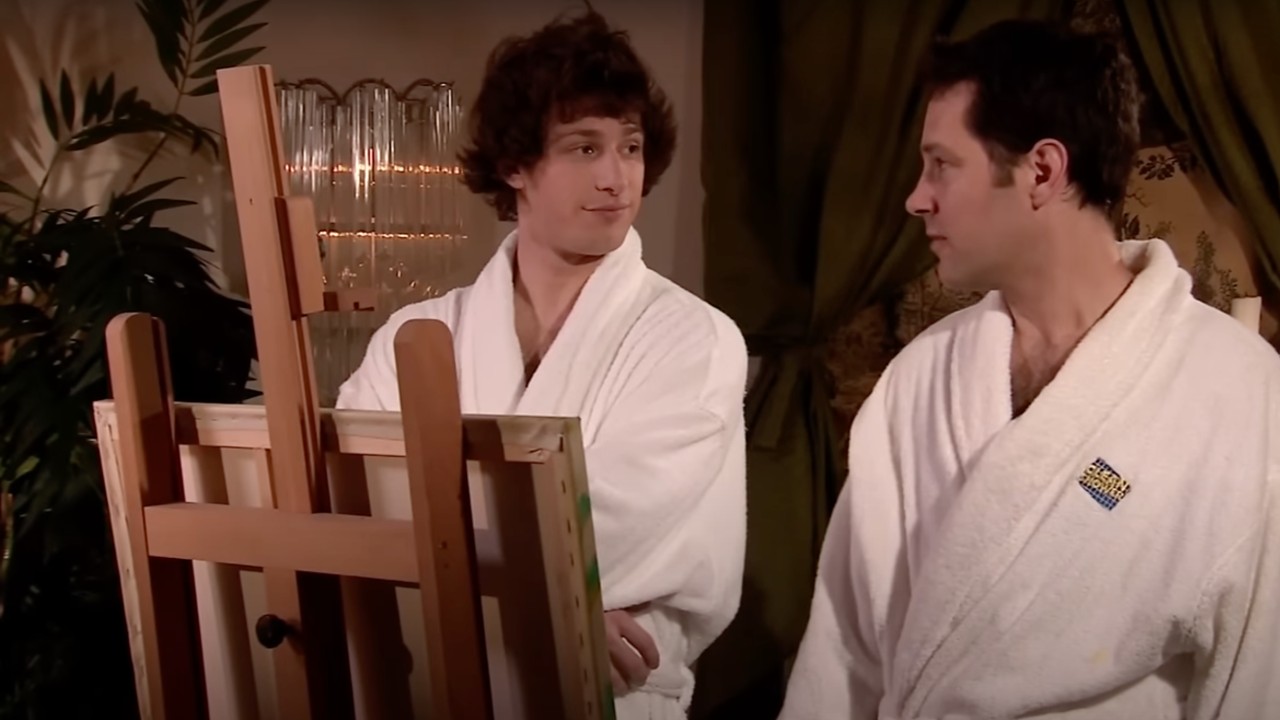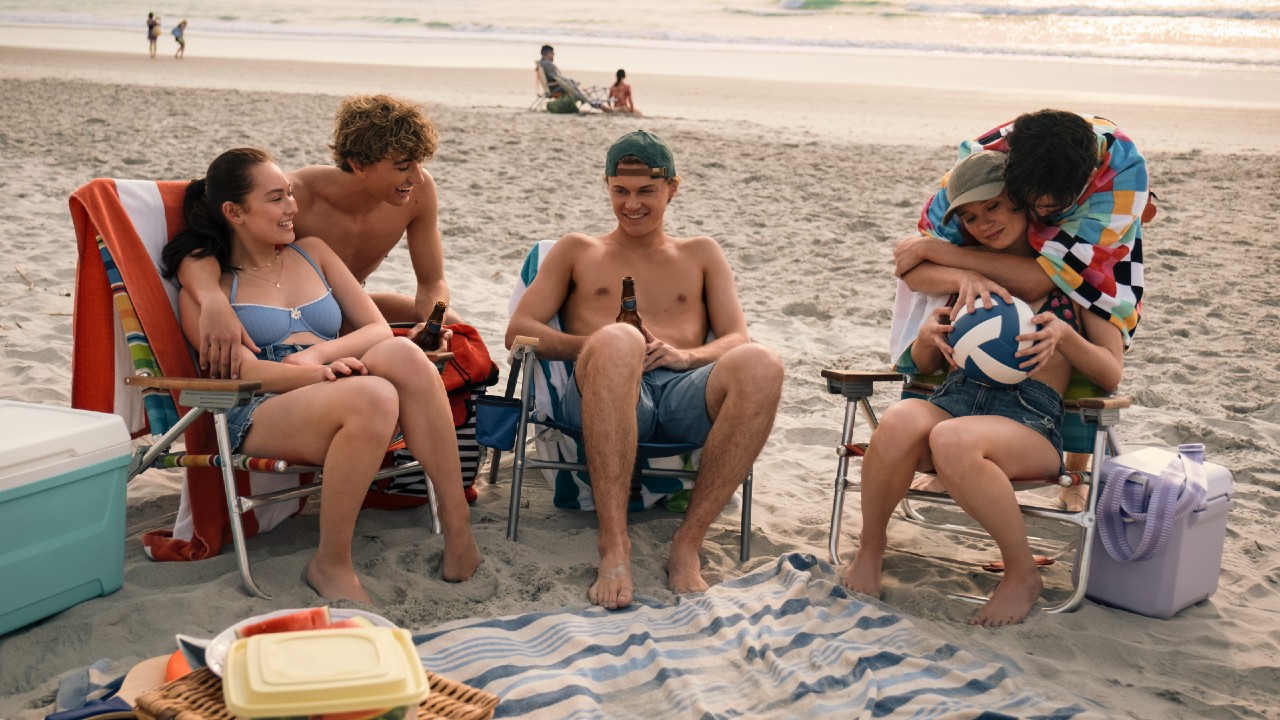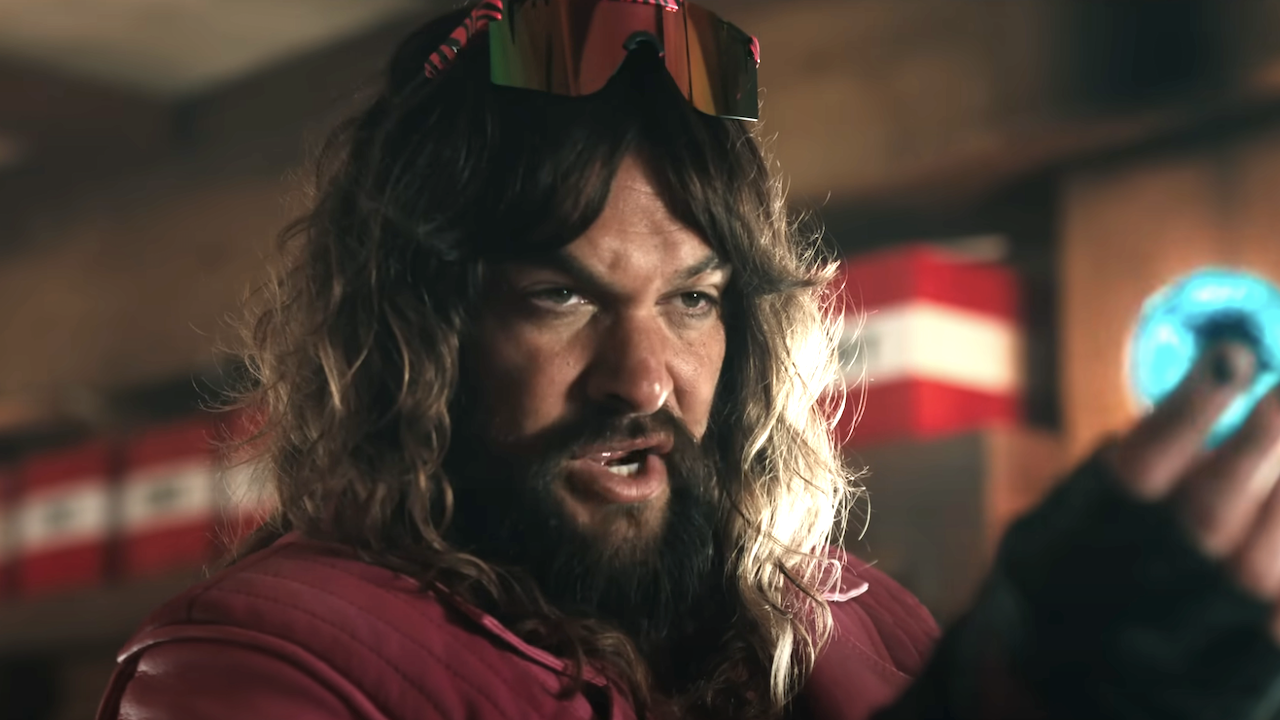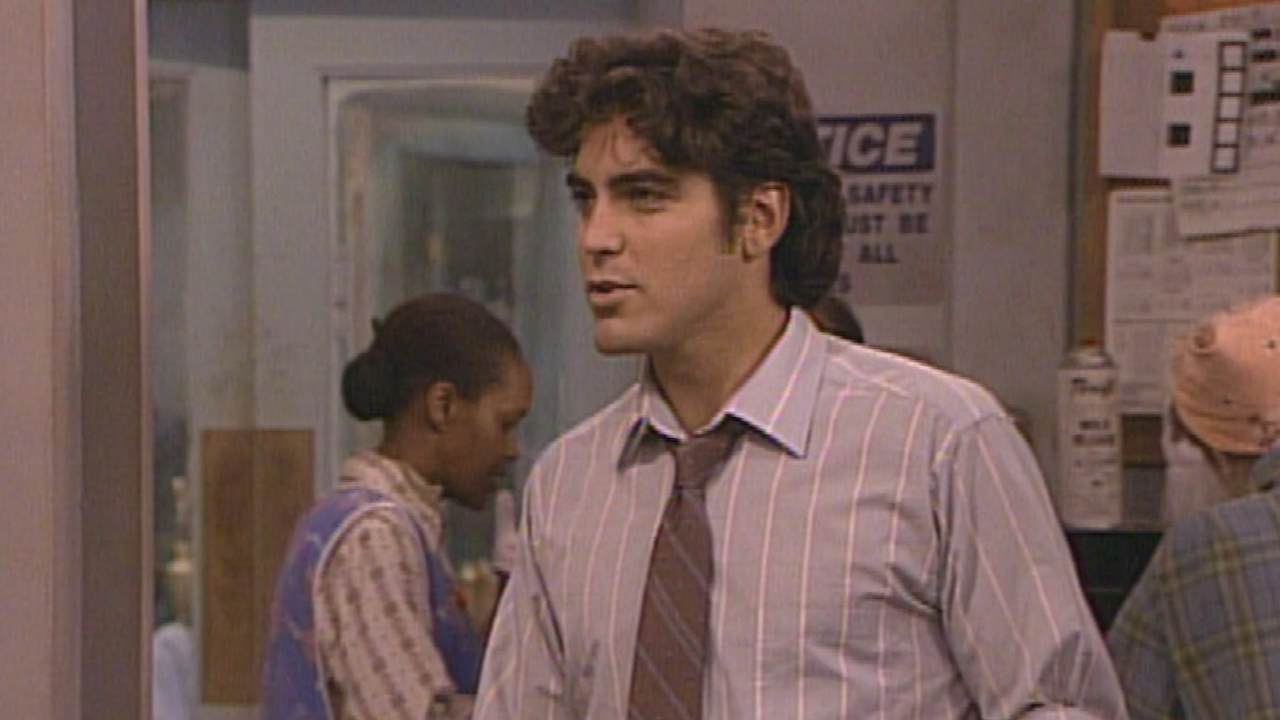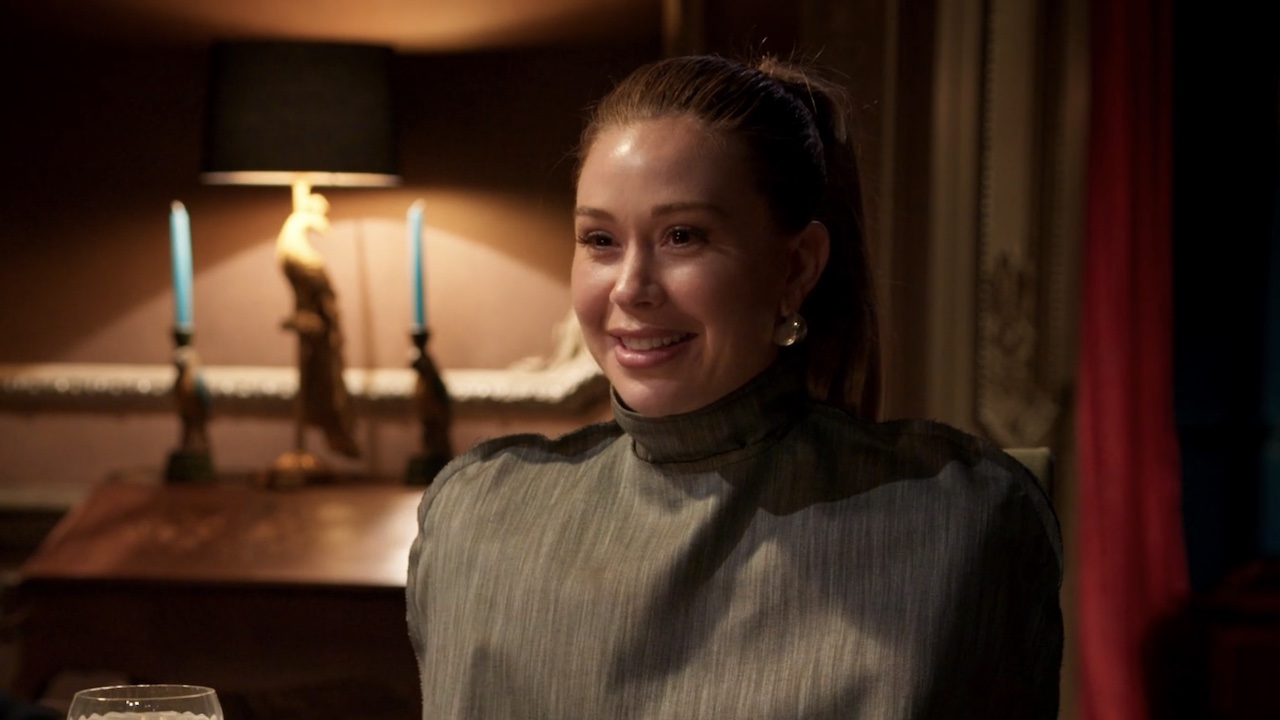Zoe Bell Talks Raze, Catfights And Being A Feminist Icon
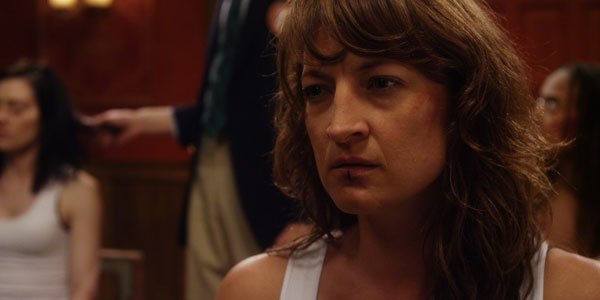
It's easy to be in awe of Zoë Bell. As a stunt double for such iconic screen heroines as Xena: Warrior Princess and The Bride of Kill Bill, she basically defines badass. But Bell broke new ground when a fateful meeting with Quentin Tarantino--caught on tape in the documentary Double Dare--led this stunt performer out of the shadows and into the spotlight. Playing a version of herself in in Tarantino's Grindhouse contribution, Death Proof, she's won untold fans and become a feminist icon. But for Bell, none of this was planned. She has no intentional political agenda in her work, explaining, "I’ve never felt the need to get on a soapbox about it.…Treat me with the respect that I’ve earned, regardless of boobs or not."
Following memorable appearances in films like the roller derby sport movie Whip It! and the Tom Cruise sci-fi vehicle Oblivion, Bell is now fronting Raze, a horror-thriller she also produced. Directed by Josh C. Waller, this women-in-prison movie boldly aims to subvert the exploitative genre by redefining its requisite girl-on-girl violence and refusing to titillate audiences with barely dressed powerless heroines. Bell stars as Sabrina, a former soldier who must fight in kill-or-be-killed battles not only to preserve her life, but also to save that of the daughter she gave up for adoption years ago.
While her character in Raze is often scowling and stern, Bell herself was wonderfully bubbly and warm when we met for an interview in New York earlier this week. She spoke openly not only about why this movie mattered to her, but also about how she hopes the movie's no holds barred fight scenes will urge audiences and moviemakers to reconsider how action movies treat the sexes differently.
By your count, what is the allure of the women-in-prison genre?
Zoë Bell: Well, it’s interesting, because I think they appeal to people for different reasons, and our movie is sort of a weird take on the women-in-prison movies, so it’s sort of--I feel like the things that are kind of alluring about women-in-prison genre is sort of the things that are slightly removed from Raze. So, it’s sort of a weird, I hope we don’t disappoint women-in-prison genre fans.
To assure people, there’s a lot of violence. You deliver hard core on that.
Oh yeah. No shortage on violence.
CINEMABLEND NEWSLETTER
Your Daily Blend of Entertainment News
I think what you’re talking about is that there’s a lack of sexualization of the characters.
There’s almost zero sexualization of the characters and we try to remove anything that could be construed as hammy. I don’t know what a better American version of the word is, like hammy in New Zealand means sort of, does it mean the same thing? Sort of slap-sticky?
Campy.
Campy, yeah. Our intention was to remove, for no reason other than it was sort of an experiment. What would happen if we did a women-in-prison movie, but they have clothes on. There was no shower scene and these women were fighting for something real and they were hating fighting. What would happen if we did that, you know? What happens is a movie that’s quite confronting. It’s surprisingly shocking to a lot of viewers, and me too. The first time I watched it as a whole with a theater full of people and the whole score and foley and soundtrack, the credits rolled and I was like, "Wooo."
Yeah, there’s bone-crunching. There’s a lot of bone-crunching.
There definitely is.
Because a good section of the movie is just hand-to-hand combat between women, I feel like there are people who are going to want to apply the word "cat-fight," but what the common concept of a cat-fight doesn’t fit here.
Yeah, well that was sort of what we were experimenting with was a type of female fight that we hadn’t seen and that I hadn’t done. I’ve done lots of different styles of female fights, or fighting in general…I don’t know what my language is allowed to be on this (interview)--but the bitch fight element doesn’t apply. Because we were shooting it and we were choreographing it. And we were having the girls engage in it the way we would if it was a male fighting a male to the death. Which I just think--it’s definitely getting a reaction that would say that that’s rare, that’s not something that’s common, good or bad.
Several of your films have clear feminist themes. Was that something that was important to you in making Raze?
You know, it’s been really interesting, because it’s come up a lot, the concept and the discussion topic of feminism. Which makes complete sense. But the thing that’s been so interesting for me is that I didn’t walk into this with the purpose of making a feministic statement. What I wanted, and actually the other three producers who will all agree, the one thing we never disagreed about was that we wanted it to be true. We don’t want it to be true in the real world. We hope no one anywhere is making women fight to the death.
But authentic.
Authentic, yeah, exactly. So, it was sort of, and I think, in wanting that, the fact that we couldn’t find it anywhere else is sort of a statement about feminism and how real women stand in the world of action as it is. So, I guess just in wanting to make this film, we were making a statement.
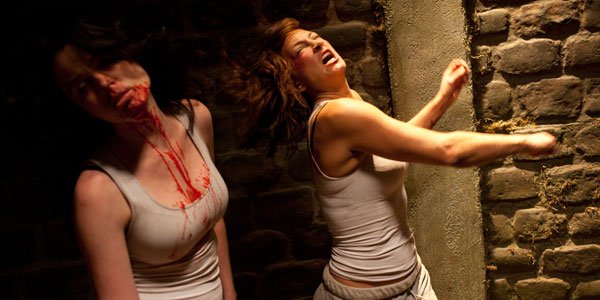
That’s always something I’ve wondered about your work, because clearly there’s feminist films along the way. There’s Death Proof and Whip It, for instance. But I wonder if that’s just part and parcel to you being the stunt woman that you are, of course you’re getting those kinds of movies.
I’ve been thinking about it a lot. I think being the producer on this film, it’s come up for me a lot, and I think what I discovered is just by the nature of me being the person I am and being who I am in work, and the way I work, and the kind of work I do, means that I just am that person. It’s sort of I represent that just by being it. I’ve never felt the need to get on a soapbox about it. I never felt a need to fight for it. I’ve never felt the need to. And don’t get it twisted, there have been times where I’ve had to be like, "I know I have boobs, but I can still do this, so you should hire me," but I don’t feel like I’m fighting for the right to be, I’m just like telling you, "Treat me with the respect that I’ve earned, regardless of boobs or not." I’m not fighting to be treated like a dude. I don’t want to be treated like a man. I want to be treated as a talented stunt-person, or I want to be treated as an intelligent person.
Being a producer on this film, how did that change the experience of making the film for you, versus the other films you’ve done?
I just, it meant that I was way more hands-on and I was far more involved in the collaboration and the creative side and I loved it. I loved that being a part of the story-telling team was massively satisfying for me. It kind of bled through, my creating Sabrina kind of bled into it a lot. I didn’t write the script, by any means. It’s not my story, but my opinion--like I always have opinions--I’m a very opinionated individual, but it was really fun to have my opinions be heard and bounced around and either accepted or rejected. And it was fun to have other people put their opinions in front of me and have the option of playing around, I don’t know. I just really enjoyed the creating part. It was really satisfying.
Sabrina is grimmer, more somber character than I think the role that most people seem to know you from is Death Proof, where you obviously play a version of yourself. Was that something that was important to you to show your range as an actress?
Yeah, it was sort of, I have to give credit to Josh on that one really, because he’s always had it that I’m capable of a lot more as an actor than I knew and therefore everybody else knew. So, he was very much like, I want to see you pull this stuff out of your hat. I want to see you showing people that you can act. I was like, ehhh, which is works for me, because the minute I’m responsible for somebody, I step up, and yeah, it was really important for me to--not even to find a role like this, but when it presented itself to me, to say yes was important.
How did you get into stunts to begin with?
I’ve always had a fascination with gymnastics, since I was a kid. It was the one thing at the Olympics that I would be like, "Mom can I stay up late to watch gymnastics?" It was the one thing she would let me, and I got into gymnastics when I was about nine, sort of competitively, and I did it until I was fifteen, which was when I was too old, because that’s the truth of gymnastics. I started doing martial arts and I basically met people through both of those worlds, who turned out to be stunt people, and to be honest, it hadn’t even occurred to me that stunt people existed outside of Evel Knievel, like daredevil types. It never even occurred to me that film crews existed. They were just videos in my video store that I watched and the video store just dropped them off. So, when I found out that these people were literally paid to perform and fight and flip, I was like, "Really, God, did you invent this job for me? Is that what happened?"
So, that was sort of, I got really excited about it and then I started talking about it a lot, and met people, and got phone numbers and just kind of put myself out there, due to my dad, basically. My dad was like, "You should just make this phone call, because you could wake up tomorrow exactly the same person you are now, or you can wake up tomorrow a stunt girl," and I was like, that’s really tempting. He came home with the phone numbers, because he was a doctor and a stunt man came in with a bump on his head and dad found out he was a stunt man, and he was like, "My daughter, blah, blah, blah, blah, blah..." and he came home with the phone number.
I’ve seen Double Dare, obviously. It’s funny, because it does sound like your whole story could very well be its own narrative film, even in the form of Whip It!. Like this girl who took this chance becomes her own hero. That’s really cool.
(Laughs) Yeah, that is cool when you say it like that.
Raze opened in limited release on January 10th.
Check back later this week for more from our interview with Bell, in which she talks about her mysterious Django Unchained character, the potential Expendabelles project, and why she hasn't appeared in a Fast and Furious movie yet.
Staff writer at CinemaBlend.
I'm A Huge Donnie Darko Fan, And Talking To Beth Grant And Jolene Purdy About Reuniting For The Bondsman Was A More Adorable Experience Than I Expected
'I Have That Conversation At Least Once A Week': John Larroquette Talks Waiting On Night Court's Renewal, And I Love His Season 4 Ideas

